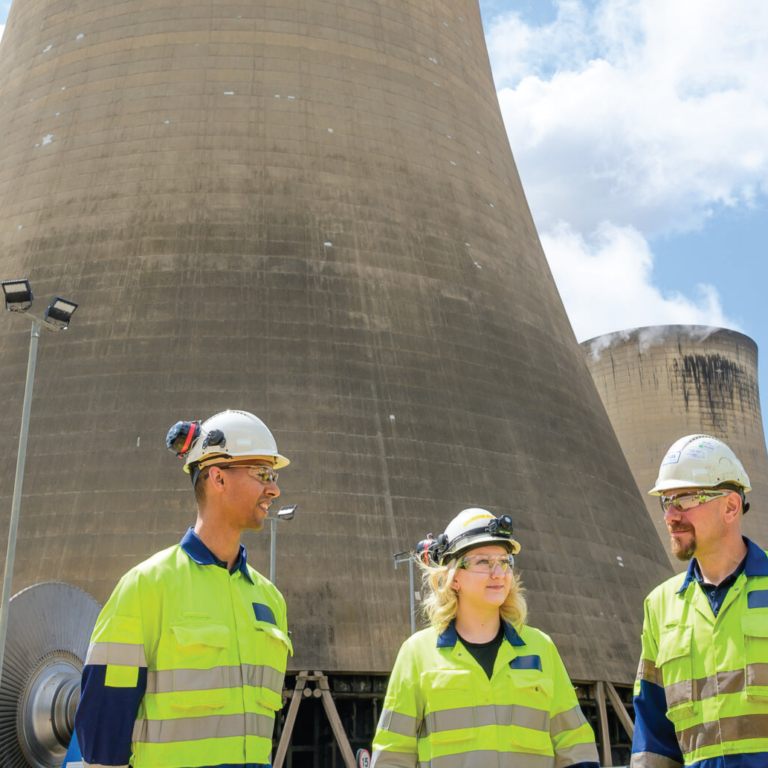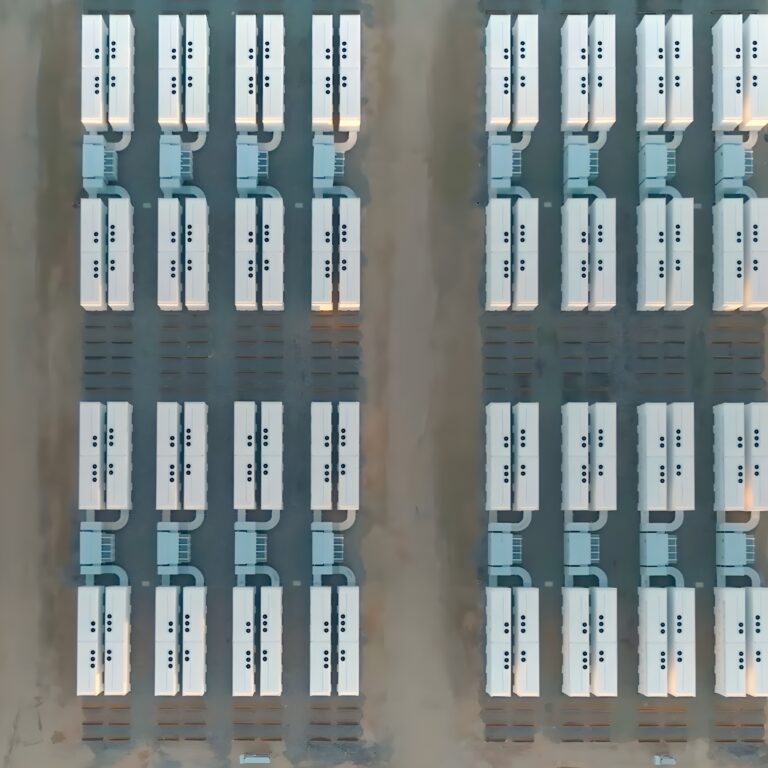 Good morning everyone.
Good morning everyone.
I would like to begin by thanking the British Chambers of Commerce for inviting me to speak today.
Adam Marshall and his team at the BCC do so much to represent British business – and events like this one today help bring together business leaders from across the country to discuss the opportunities and challenges facing UK plc.
Having been with Drax for two years as CFO, I became the Group’s CEO at the start of this year. In a few short weeks, I went from navigating the company’s finances to being captain of the ship.
Drax is a company that has gone through fundamental transformation. A transformation that is unprecedented for a company so critical to the UK’s infrastructure.
Almost 50 years ago, Drax began generating electricity from its power station in Selby, Yorkshire.
It provided more than enough electricity to power all the homes in London twice over – helping to power a resurgence in industrial output and an explosion in demand from consumers for white goods.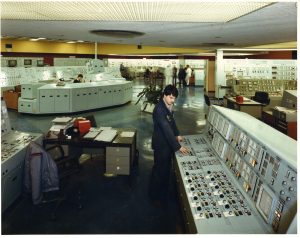
For three decades, the company continued in the same vein. Burning coal to power the country’s seemingly insatiable demand for electricity.
But as the world welcomed in the new millennium, everything changed.
Simmering and justifiable disquiet about the impact of fossil fuels on the environment gathered momentum and reached a nadir, resulting in climate change rising up the political agenda – both in the UK and internationally.
It sounded the death knell for Old King Coal and ushered in a wave of new, low carbon, renewable power generators.
Rather than trying to hold back the tide – and with the support of Government – Drax reinvented itself – and set about changing the UK’s energy landscape in the process.
Out went our dependence on coal and in came biomass – sustainable and renewable wood pellets that emit 80 per cent fewer carbon emissions than its predecessor.
Drax went from being the UK’s largest polluter to the largest single site renewable power generator in the country.
But from supporting a renaissance in the industrial revolution, we now stand on the precipice of a wholly-different revolution: an electric revolution.
And, more specifically, a people and business-powered renewable electric revolution.
A revolution that won’t seem so revolutionary to my daughter and her peers in 2035, as electric vehicles cruise clean streets without the need for a driver and our household appliances are all connected and communicate with one another.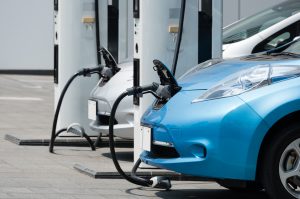
A revolution that will see the electrification of transport and heating. Where, at a larger scale, the introduction of artificial intelligence will allow the entire grid to connect and work in harmony with every one of the billions of devices taking energy from it.
A revolution that will not be driven solely by large-scale power generators, but by ‘prosumers’ – individuals, businesses and institutions that not only consume electricity, but produce it too.
Spurred by falling costs that will make technologies like rooftop solar panels and domestic battery storage more affordable, prosumers will change the dynamic between energy suppliers and energy users for good.
From disengaged to engaged. From passive to active. From consumers to producers.
Prosumers want a reliable and flexible self-supply of energy – and to call upon a mix of renewable technologies, just as the national system does.
They want – and will have – the capacity to generate their own energy via a mix of solar, wind and biomass and then, crucially, sell back their excess electricity to an energy supplier.
In fact, new measures have already been put in place to encourage people to generate their own electricity.
These will make it easier for prosumers to generate, store and sell back their power to the Grid – something Ofgem estimates could save consumers up to £40 billion by 2050.
But what could this mean for the business of electricity?
Some, including National Grid, suggest multiple ‘commercial models’ will operate together to facilitate a decentralised, prosumer-based energy system.
These would include homes and businesses that wholly own their energy systems, as well as systems owned and operated by third parties, such as aggregators managing energy or solar-rental schemes.
This isn’t tomorrow’s world: it’s today’s.
Similar schemes are already in place in both the business and consumer retail markets.
Last year, for example, Opus Energy – a Drax Group company supplying energy to UK businesses – bought almost one terawatt of power from more than 2,000 small renewable generators.
These businesses use technologies such as solar, onshore wind and hydro. Opus Energy then sells that power onto its predominantly small business customer base.
And it’s here where perhaps the success or otherwise of the electric revolution will be determined.
 Most business owners are extremely time poor with a very broad range of responsibilities – all of them pressing.
Most business owners are extremely time poor with a very broad range of responsibilities – all of them pressing.
Although important, especially if they want it to be renewable, energy supply is unlikely to get much of their attention.
Far too frequently, energy is just confusing and unnecessarily complex.
The agenda is set by the supplier; seldom by the customer.
For the most part, businesses just want an energy supplier that can satisfy their particular energy needs and preferences simply, intelligently and accurately.
That’s why we want our customers to be able to make better and more informed choices.
Not only because that’s what they want, but also because it means renewable power and the way it is used will become a real part of the UK’s energy future.
But why does this make sense?
Well, think of your rubbish. Or rather, think back to your rubbish a decade ago.
Ten years ago everything – paper, plastic or glass – ended up in one bin and it all went to the same place.
Until, that is, people realised that to make daily recycling a more realistic proposition, it needed to be simple and easy. So, councils set about providing better facilities and services from bins to collection.
Now, when we throw away our rubbish, we sort it and separate it. What once seemed too difficult and over-complicated isn’t any more.
Now recycling and its contribution to greater sustainability is second nature.
We believe there needs to be a similar approach and attitude in energy supply.
Of course, all energy supply should be easy and straightforward – especially renewable energy. It might have been difficult and complicated in the past but it certainly isn’t now.
So perhaps the biggest barrier to large-scale adoption of prosumerism is technology.
Although research and innovation pounds, dollars and euros have been pouring into the technologies that make decentralised power generation possible, there are still developments to be made.

Solar is one of the most prominently used renewables by prosumers thanks to the relative affordability of rooftop solar systems.
Even home-interior giant IKEA now offers solar panels and battery systems through a partnership with the UK’s largest solar company, Solarcentury.
But like wind turbines, which are a more cost-prohibitive solution, solar is an intermittent energy source, which means domestic users may still need to access the grid to fill gaps in their own generation.
That is unless battery technology advances to a point where it can store enough solar – or wind-generated electricity to fully power homes and businesses affordably – all-year round, including in the dark, still days of midwinter.
Along with small scale generators, large-scale power producers have a crucial role to play here.
If we can store renewable electricity from intermittent sources when they are able to generate, it could then be utilised at times when they’re not.
However, the problem is the technology capable of storing electricity at scale doesn’t exist… yet.
But the race to develop it is well under way, and several companies are working on building ever bigger, more efficient electricity storage methods.
And Drax is at the front of this race.
We’re planning to develop two giant 100 megawatt batteries at our site in Selby.
These batteries would store electricity to enable our proposed gas-fired power generation to ramp up faster when needed – making our power station purpose-built for a more flexible future.
Together, they would be the largest batteries of their kind anywhere in the world.
But whether it be batteries or biomass; solar or electricity supply, what all parties need is certainty.
Like all large-scale energy producers, we need certainty of long-term policy to enable us to make investment decisions.
Investment decisions that will bring forward projects to make the electric revolution a reality.
And businesses looking to invest in renewable technologies need certainty to ensure their long-term investments will be economically viable.
The certainty Government provided energy suppliers more than a decade ago brought forward unprecedented investment in renewable power generation.
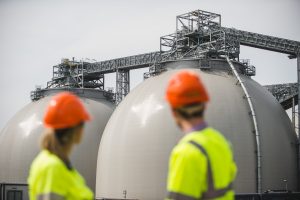
Investment that not only is helping to decarbonise the country’s energy supply, but has also created thousands of new jobs and empowered supply chains up and down the country.
Suppliers – and Drax included – also need certainty to help support small businesses to realise the full benefit of the electric revolution.
We must work harder to make systems easy to use and manage. We must create attractive tariffs and we must provide a service that gives peace of mind.
I am committed to doing all of this – because it makes sense for all of us.
But I am not just committed to changing what we do, but also how we do it. And I have spent much of my first two months as CEO looking at this.
A more diverse workforce is a stronger workforce. If Drax is to achieve what we’ve set out to achieve, we need to embrace this – because, quite simply, what we’ve been doing so far has not been good enough.
Without doubt, the energy sector as a whole must do more to attract women into the industry. But, speaking personally, I am committed to taking a lead and changing Drax’s practices, policies and culture to ensure we are an employer of choice for women who see their future in energy.
As I stand here today, I can reflect proudly on Drax’s transformation. But I hope that my successors will reflect more proudly on the role they played to transform the entire energy sector.
Not just for Drax, but for you too – the businesses that really power UK plc.
Thank you.







